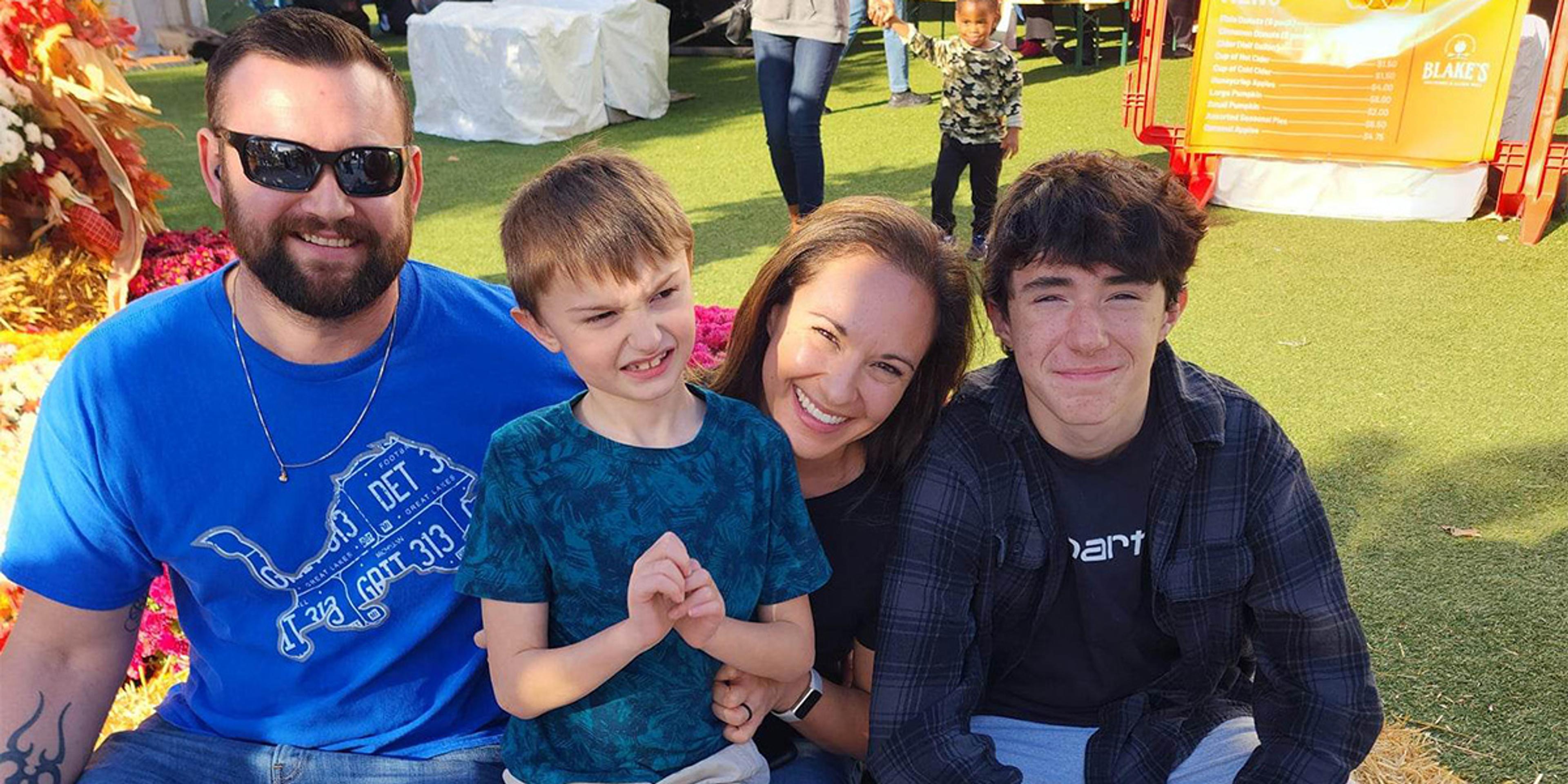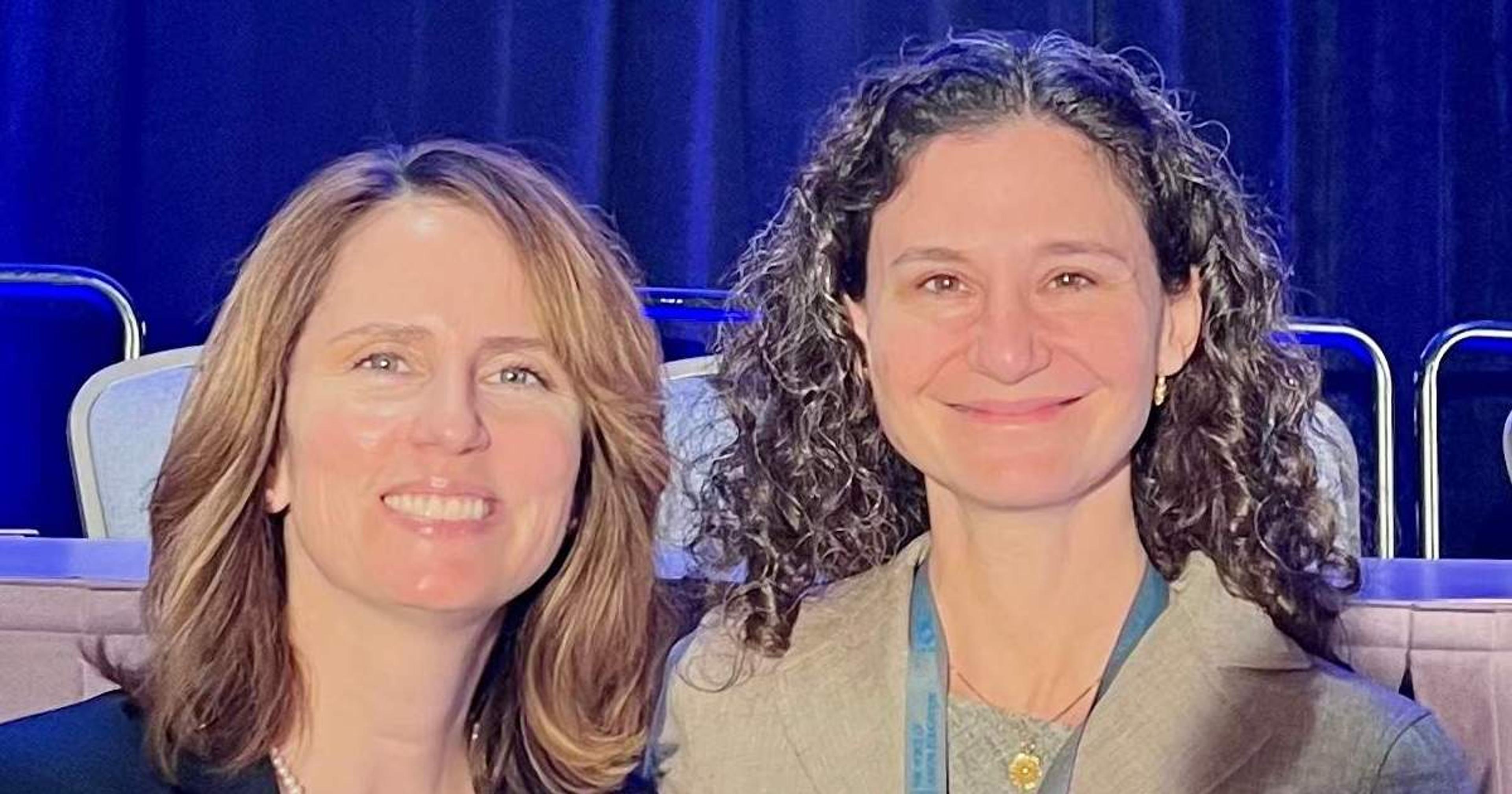Speakers Highlight Importance of Inclusion
Alyssa Witzleben
| 3 min read

When we think of diversity and inclusion, the two main components that come to mind are often race and gender. However, there is much more to consider when discussing diversity and inclusion efforts. Two speakers recently presented their perspectives on how communication and understanding go a long way in helping everyone feel included and welcomed. Dianne McKittrick, executive director of Communication Access for the Deaf and Hard of Hearing, and Brad Cohen, president of the Brad Cohen Tourette Syndrome Foundation, spoke to Blue Cross Blue Shield of Michigan employees as part of a month-long celebration of diversity in August. McKittrick was born deaf and is a passionate advocate and representative for the deaf and hard of hearing community. Her powerful talk highlighted how diversity is far more than just different ethnicities and genders, it also includes those with disabilities. Telling her story with the help of a translator, McKittrick used personal anecdotes to illustrate the need for more advocacy toward health care inclusion for the deaf and hard of hearing community. McKittrick explained that Michigan ranks seventh for number of deaf residents, but 47th for funds spent on the deaf community and proper accommodations. Growing up in a family of deaf parents, McKittrick said she was lucky to have been able to learn how to sign as a child. In most cases, however, children are born into families with hearing parents who do not know how to sign, leaving these children unable to communicate. And at the end of the day, the most important need for the deaf community is the need to communicate. Communication when it comes to health care can be difficult, McKittrick acknowledged. She said reading lips isn’t ideal, but if there isn’t a translator available, it’s sometimes the only option. One anecdote she shared was about how her brother, a member of the non-hearing community, was diagnosed with terminal cancer but didn’t understand he was terminal, so McKittrick had to tell her own brother he was going to die. McKittrick’s story illustrated why there’s a demand for inclusive communication efforts in the deaf community. It isn’t the job of the non-hearing community to justify their need for communication, but instead everyone’s responsibility to recognize the communication barriers and work to make it possible between both the hearing and non-hearing communities. Cohen is an author, school administrator and teacher. He also happens to have a diagnosis of Tourette syndrome. Growing up with Tourette’s, Cohen said he knew exactly what it was like to be on the outside looking in. Tourette syndrome is a neurodevelopmental disorder that results in chronic tics and sometimes, in Brad’s case, uncontrollable noises along with the tics as well. Brad says his tics and “frog-like” noises began when he was in grade school and made him a target to bullies and teaches alike. Teachers grew quickly annoyed with his tics and would reprimand him for doing so, not knowing they were a symptom of his Tourette syndrome. But Cohen, like McKittrick, stressed the importance of one thing that helped him live with his Tourette’s: communication. Cohen told the story of how one day, the principal of the school held an assembly and informed the entire school about Tourette syndrome, what it entails, and how it affects Cohen. After the assembly, he was blown away to the have the entire school clap for him. The torment he received from bullies in the hallway ceased. All it took was communication to get a little inclusion. Both speakers shared that diversity and inclusion is about celebrating and welcoming difference between us and our neighbors. The first step to inclusion begins with understanding, which McKittrick and Cohen helped employees in attendance take steps toward. If you enjoyed this post, you might also like:
- Blue Cross Blue Shield of Michigan CEO: Inclusion is "My Responsibility"
- The Importance of Diversity and Inclusion
- Blue Cross Welcomes CEO Action for Diversity and Inclusion Tour
Photo credit: fstop123





